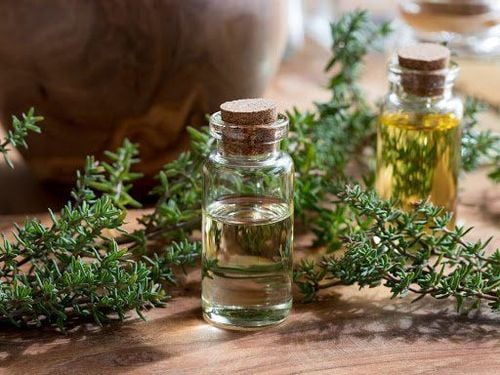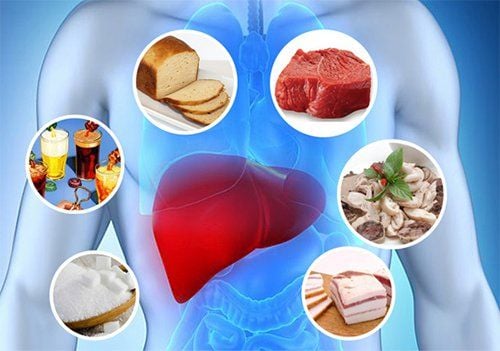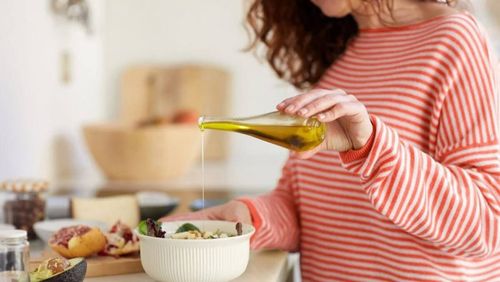This is an automatically translated article.
Cooking oil is considered an indispensable condiment in the kitchen, the use of cooking oil will help the dish become more delicious and attractive. However, is eating cooking oil good and healthy cooking oils?
1. Is cooking oil good and what is the best way to use it?
Cooking oil is a key ingredient in many dishes and the use of oil in cooking and meal preparation is an essential part of making a meal delicious. Oils can be part of a wonderful recipe.
Whether you use cooking oil for your favorite salads, or use it to cook other dishes, the type of oil you use can make a difference to your dishes.
Every oil has its purpose and choosing the right oil that will still benefit you is an important part of everyday cooking.
1.1 How do different oils make up a healthy diet? It is all due to the types of fats present in the oil. “Fat provides satiety and enjoyment in the foods we eat, but it also has nutritional benefits. Fats are made up of fatty acids that work in different ways, but they are key for hormone development, transport and absorption of fat-soluble vitamins, and help regulate body temperature.
The most common types of fatty acids include unsaturated fats, saturated fats, and trans fats.
Unsaturated fats - These fats will usually be liquid at room temperature and come in two main forms, monounsaturated and polyunsaturated. These fats may help prevent metabolic heart disease and lower cholesterol levels. Saturated fats - These are usually solid at room temperature. Many studies have linked a diet high in saturated fat with high cholesterol levels and an increased risk of heart disease. Therefore, it is best to consume these substances in moderation. Trans Fats - Most trans fats are produced through hydrogenation, which helps increase shelf life. They can raise LDL cholesterol and lower HDL cholesterol, a combination that increases the risk of heart disease. Another thing to keep in mind is that all fats have 9 calories per gram, which can contribute a significant amount of calories to the diet.
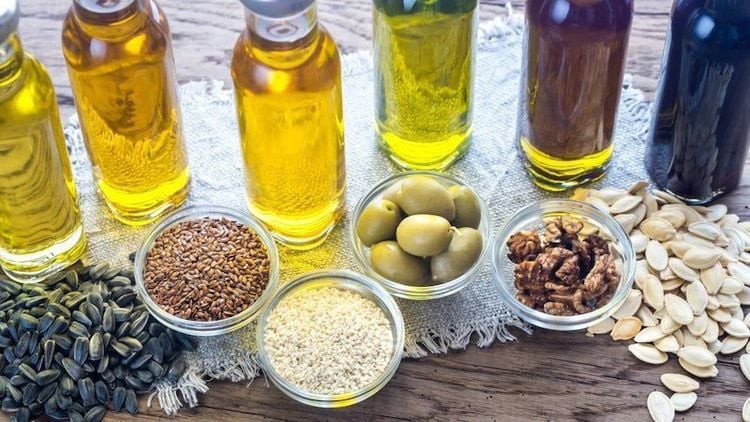
Dầu thực vật giúp món ăn trở nên ngon miệng và hấp dẫn hơn
1.2 What is the best way to use oil? If you often cook at high temperatures, you should use oils that are stable and do not oxidize or go rancid. As oils oxidize, they react with oxygen to form free radicals and harmful compounds that you certainly don't want to consume. The most important factor in determining an oil's resistance to oxidation and free radical formation at both high and low temperatures is the saturation rate of its acids.
Saturated fats have only one single bond in the fatty acid molecule, monounsaturated fats have one double bond, and polyunsaturated fats have two or more. These are double bonds that are chemically reactive and sensitive to heat.
Saturated fats and monounsaturated fats will resist heat, but oils that are high in polyunsaturated fats should be avoided in cooking.
2. Healthy cooking oils
Currently on the market there are more and more types of cooking oil for people to choose from. Each type of oil often has different characteristics and is used for its own purposes in the food processing process. Some are used for frying, while others should only be added to enhance the flavor of the dish. Here is a summary of some healthy cooking oils that housewives should refer to such as:
2.1. Olive oil is the best Olive oil is a staple ingredient in Mediterranean cuisine. It is rich in phenolic compounds, each 100g of olive oil contains about 72,961g monounsaturated fatty acids, 13,808g saturated fatty acids and 10,523g polyunsaturated fatty acids. Taking extra virgin olive oil, especially the extra virgin, may help reduce the risk of heart disease and death in people at increased risk of heart disease.
While all oils have their good points, you probably don't know whether it's extra virgin olive oil or extra virgin olive oil has antioxidants and is very good for health. They may help fight cancer and have anti-inflammatory properties.
2.2. Avocado Oil This oil, extracted from avocados, has a mild flavor and is an option that goes well with most dishes. Avocado oil has the most monounsaturated fats of all oils. Although the price is not cheap, this oil offers both health benefits and versatility in food processing.
Avocado oil contains 16.4% saturated fatty acids, 67.8% monounsaturated fatty acids and 15.2% polyunsaturated fatty acids. One study found that 13 healthy adults who were regularly on a high-fat and high-calorie diet replaced with avocado oil for 6 days and noted significant improvements in insulin, blood sugar, and total cholesterol. fractions, LDL and triglycerides.
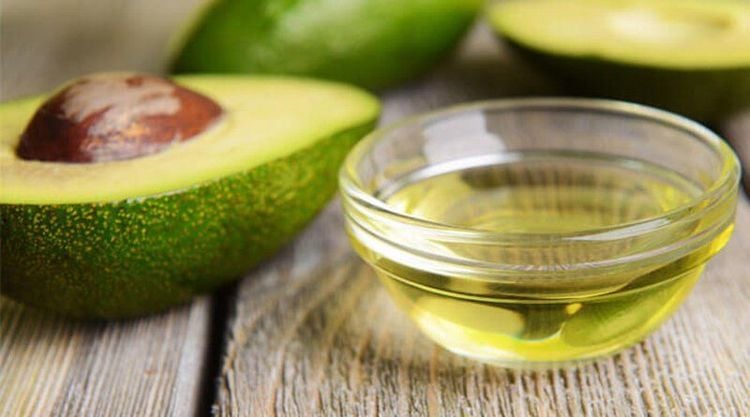
Dầu quả bơ là một trong các loại dầu thực vật an toàn
2.3. Flaxseed Oil Flaxseed oil is an excellent source of monounsaturated fats and omega-3 fatty acids. Diets rich in omega-3s have been shown to lower blood pressure and cholesterol in people with high cholesterol.
Flaxseed oil is very sensitive to heat so it can go rancid and oxidize quickly. Therefore, you should put this oil in salads, instead of using it for cooking. Because flaxseed oil is perishable, people also need to keep it refrigerated.
2.4. Sesame oil According to a study, sesame seeds contain 50-60% oil with polyunsaturated fatty acids, antioxidants, sesamin, sesamolin and tocopherol analogues. The fatty acids present in sesame oil include 35-50% linoleic acid, 35-50% oleic acid, 7-12% palmitic acid, 3.5-6% stearic acid and a little linoleic acid.
Sesame oil contains many nutrients and antioxidants. This oil has anti-hypertensive and anti-cancer properties. Taking sesame oil will help reduce fatty acid levels in the liver and lower serum cholesterol levels.
Sesame oil is rich in monounsaturated and polyunsaturated fats. Sesamol and sesamin in this oil are powerful antioxidants. Some studies have shown that sesame oil has the ability to lower blood pressure. Because of their great taste, you can combine them with stir-fries and substitute for peanut oil for people who are allergic to peanuts.
2.5. Sunflower Oil Sunflower oil has a neutral taste and is light in color. 100g of sunflower oil contains 19.5g monounsaturated fatty acids, 65.7g polyunsaturated fatty acids and 10.3g saturated fatty acids. According to one study, sunflower oil was found to lower total cholesterol and “bad” cholesterol (LDL) and increase “good” cholesterol (HDL).
2.6. Walnut Oil Due to its many plant compounds, people should only use walnut oil as a condiment to add to salads.
Walnut-based products provide high amounts of omega-3s. Walnut oil is rich in nutrients and plant compounds, says Wendy Bazilian, registered dietitian and director of the Brazilian Health Center in San Diego. However, because of this, walnut oil is often present in salads instead of fried foods.
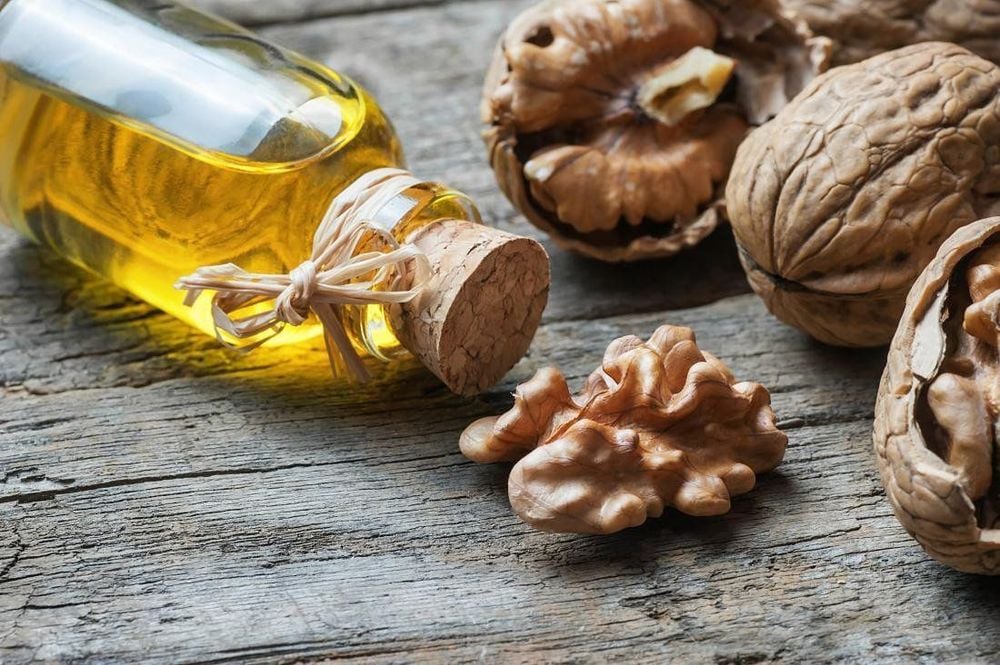
Dầu óc chó là loại dầu thực vật dùng vào một số món salad
2.7. Peanut oil More than half of the ingredients in peanut oil are monounsaturated fats. According to the cooking habits of Asians, peanut oil is the ideal choice when cooking, frying and drying meat. Not only do they taste delicious, they're also an excellent source of vitamin E, about 11% of the recommended daily intake by experts.
100g of peanut oil contains 16.9g of saturated fat, 46.2g of monounsaturated fat and 32g of polyunsaturated fat.
2.8. Coconut oil Coconut oil is one of the healthy oils that are commonly used in cooking.
Coconut oil is probably no stranger to those who are applying Keto and Paleo diets. This oil is 90% saturated fat and is also an excellent source of medium-chain triglycerides. According to some studies, coconut oil can increase levels of good HDL cholesterol.
2.9. Rapeseed Oil This oil is made from canola and can be used in many dishes. This is a great choice for a monounsaturated fat boost. The only problem with canola oil is that they are more expensive than other types and you should buy from a reputable place to ensure quality.
100g canola oil contains 7.14g saturated fat, 64.29g monounsaturated fat and 28.57g polyunsaturated fat. One study has shown that canola oil can significantly lower both total and LDL cholesterol, increase vitamin E, and improve insulin sensitivity compared to other sources of dietary fat.
In addition to using cooking oils appropriately, preserving them is also extremely important. The mistake many people make is leaving cooking oil near or on the stove. Some oils go rancid if exposed to light, heat, and oxygen. Therefore, it is best to store cooking oil in a cool, dark place.
Please dial HOTLINE for more information or register for an appointment HERE. Download MyVinmec app to make appointments faster and to manage your bookings easily.







